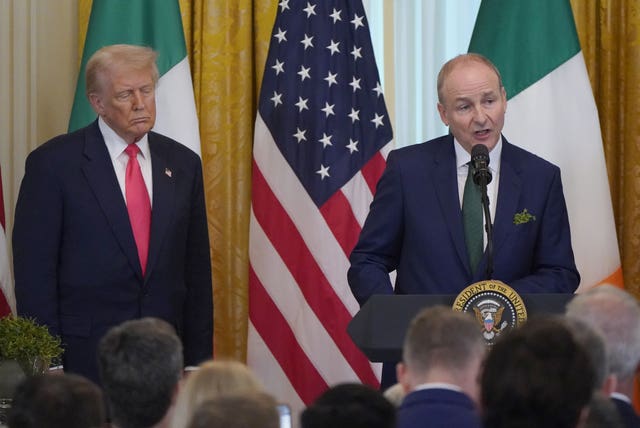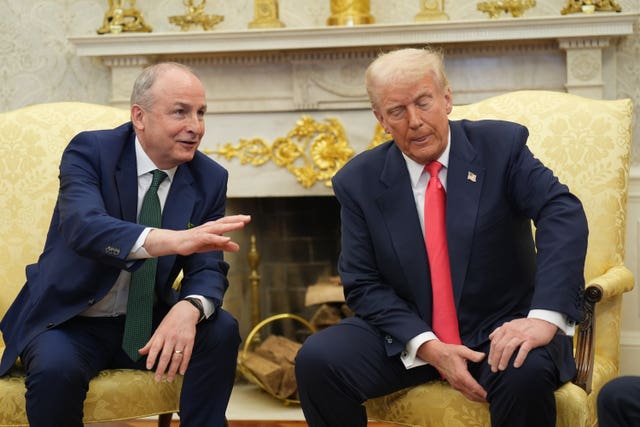Potential threat of US tariffs ‘not as stark’ as 2008 crash – Irish minister
Enterprise Minister Peter Burke said pharma tariffs could be ‘a double-edged sword’ for the US administration.

The potential threat of US tariffs is “not as stark” as the 2008 financial crash, the Irish enterprise minister said.
Peter Burke said it was hard to predict what the US administration was planning, but said that tariffs on pharma products could be “a double-edged sword”.
Several Irish ministers have expressed deep concern over how exposed Ireland is to possible double-digit tariffs on Irish exports.
US President Donald Trump and his commerce secretary Howard Lutnick have both suggested US pharmaceutical multinationals located in Ireland will be targeted in what is expected to be a major tariff announcement on Wednesday.

Irish premier Micheal Martin said expected US tariffs on pharmaceutical exports will damage the economic prospects of US companies in Ireland.
Finance Minister Paschal Donohoe said that if tariffs are imposed, it could mean 50,000 to 80,000 jobs will not be created or kept in Ireland in the next four to five years.
He also warned that a global trade dispute could put jobs at risk, impact living standards and economic growth.
Speaking on RTE Radio on Sunday, Enterprise Minister Mr Burke was asked if the impact of US tariffs on the Irish economy would be as bad as the 2008 financial crash.
Austerity was imposed in the years after Ireland’s economy overheated in the late 00s, leading to slashed public spending, many job losses and emigration.
“I don’t think it’s that stark,” Mr Burke said.
He said that the Irish economy was in “a position of strength”, growing at a rate of 3%, with two sovereign wealth funds of more than 16 billion euros and 2.8 million people employed.

“Obviously, there’s a huge amount of uncertainty surrounding 2 April. We don’t know, as of this point in time, what the shape or form of the package will be.”
Asked whether welfare rises, promised in the programme for government, would not happen if there is an economic shock in response to tariffs, Mr Burke said: “There isn’t an economic shock and we will cross that bridge when we come to it.”
Mr Burke said he didn’t expect pharmaceutical companies to move out of Ireland as a result of tariffs.
“They’re not telling me they will (relocate). So I want to put that firmly on the record.
“Secondly, in relation to the market, if you look in terms of the pharma footprint that we have here, about 96 billion euros worth of exports.
“A lot of those exports are going to Europe and the rest of the world – over 60% of them. Of the 40% to go over to the US, about 84% of those drugs are incomplete.
“So that poses a very significant challenge for the US administration because what will happen is that if tariffs are imposed, critically, the medicines will become more expensive for the US citizen.
“And secondly – and this is the important part – when we talk about our services sector – you will reduce the value of those companies. So innovation payments going back into the US economy, of which we have a 150 billion euro deficit with the US, will be challenged, and it will be a double-edged sword for the US administration.
“But critically, those US-based pharma companies are using Ireland to be regulated to a key marketplace outside of the US as well.”
“What I would be worried about is more the medium- to longer-term effect. My worry is if this uncertainty continues, there will be a concern that decisions that will be taken that will impact five, six, seven, eight years down the road will not be taken, and that’s where we need to be very strong.”





